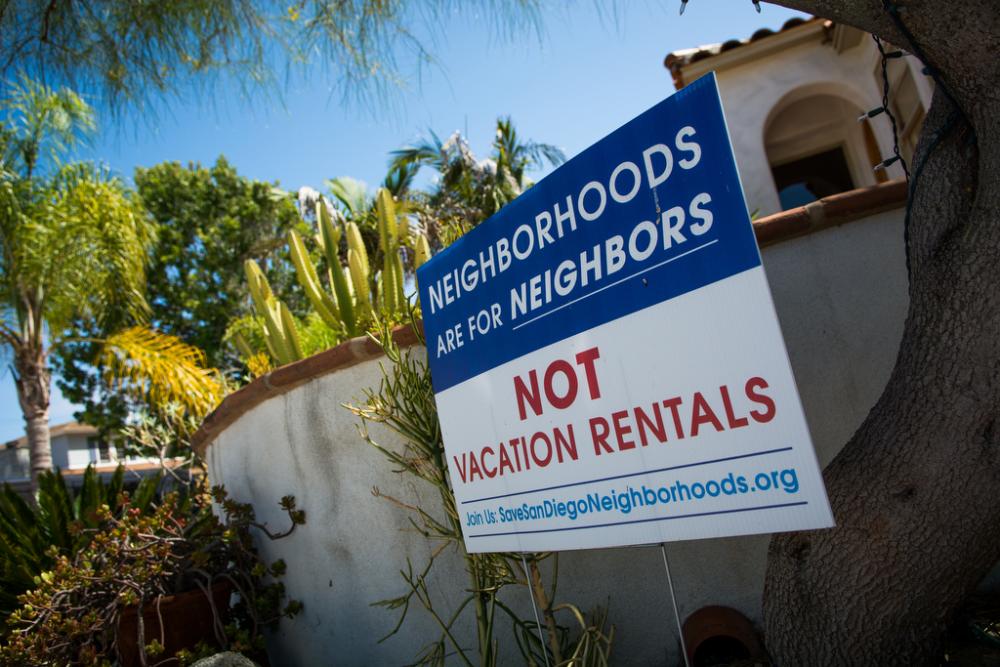At a two-hour work session in mid-December, the County Council discussed and took “straw votes” on almost twenty relatively small changes to the County’s short term vacation rental (“STR”) law. Most of those administrative changes were non-controversial, with support or no serious opposition from citizens and STR business interests alike. However, the big policy issues that many members of public had really come to hear were not taken up, but deferred to a work session being held at 6:00 PM this coming Tuesday evening, January 21st at the Wye Oak Room. Interested citizens should definitely attend.
I believe there are two conflicting world views in play.
MINIMAL STANDARDS, BUT NO LIMITATIONS
First is the belief that it is undesirable to limit the number or location of STR’s in the County in any manner, beyond ensuring each is physically safe and meets some modest operating and design standards.
So long as those criteria are met and an application is properly filled out, every single-family residential property in the unincorporated portions of Talbot County–no matter how zoned, no matter in what type or density of neighborhood, no matter if it shares a private drive with others, no matter if other STR’s are right nearby—should be eligible for an STR license as a matter of right.
Furthermore, the conversion of homes in our neighborhoods to this highly profitable commercial use should not be restricted to Talbot citizens, but is an opportunity purposefully extended to all outside investors, including corporate investors, who do not pay income taxes here, raise families here, or vote here.
Obviously, the primary rationale for this position is economic development (though marginal benefits are what matter), and in any event “economic development” is what must be balanced against other major impacts on the County. As well, it would be good to be clear-eyed as to just who benefits and who is harmed.
The primary proponents of this world view are the local STR property management firms, the Mid-Shore Board of Realtors and a few of its agents working the STR market, and some current STR owners frightened (unnecessarily) that existing licenses are under direct threat. [See recent Spy Article “Follow The Money.”]
RATIONAL LIMITATIONS ON NEW STR’s:
The other point of view is that while STR’s have a place in our community, issuance of new STR licenses must be rationally limited in one fashion or another—otherwise, before it is too late the entire fabric of our residential neighborhoods (and therefore Talbot’s “character and quality of life”, in the language of the Comprehensive Plan) could be eroded.
Why? Because of these new realities that did not exist 10 years ago: Internet marketing; the highly profitable Airbnb/VRBO business model; the sudden emergence here of property management firms aggressively promoting and facilitating this use (the largest not even locally owned); the rise of outside investors focused strictly on this for-profit use; and the high impact a concentration of transient STRs can have on a local neighborhood.
Primary proponents of this world-view are residents of local communities, already affected by STRs, supported by a number of civic organizations, and operators of B&Bs, hotels and motels trying to stay profitable with transient lodging facilities in areas properly zoned in the County.
LIMITATIONS ON NEW STR LICENSES:
There are innumerable ways to rationally limit (but not eliminate) new STR licenses in Talbot County; as Walt Kelly’s Pogo said, we’re surrounded by insurmountable opportunity. The next column will discuss some of these alternatives.
If you read the news, you know the onslaught of Airbnbs and VRBOs all over America, from the largest cities to the smallest hamlets, have caused communities to demand increased regulation of this new phenomenon. Talbot is no different in that respect, though better off than some in that we are ahead of any crisis locally. But remarkably, the Talbot County Council is considering relaxing some existing regulations.
INCORPORATED TOWNS:
Fifty-two percent of the residents of Talbot County are completely unaffected by the STR law; they are the residents of Easton, St. Michaels, and the other incorporated towns, each of which regulates its own STRs. In St. Michaels, STR’s are restricted to commercial zones. And STR’s are appropriately limited in Easton too, as only a citizen whose home is a principal residence is eligible for an STR license. (All five Talbot County Council members live in Easton, and thereby enjoy this protection.)
Attend Tuesday evening’s work session and hear directly from the County Council on STR issues. Six PM this coming Tuesday evening, January 21st at the Wye Oak Room of the Community Center, Ocean Highway.
Dan Watson is the former chair of Bipartisan Coalition For New Council Leadership and has lived in Talbot County for the last twenty-five years.
Don’t miss the latest! You can subscribe to The Talbot Spy‘s free Daily Intelligence Report here.

